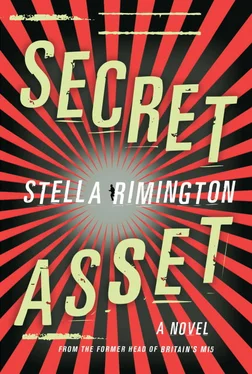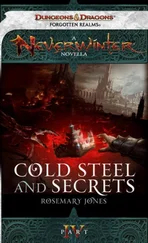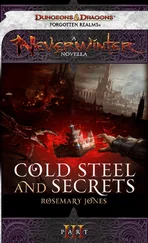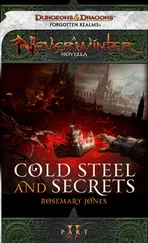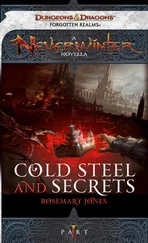As they came down through the chalk cut at Stokenchurch, and the Thames Valley opened up ahead of them, Wetherby broke the silence to say, “Part of me is hoping we’re wrong.”
“I know,” said Liz.
“On the other hand, if we are, it may be somewhere else.”
They took the Oxford exit off the M40, then got held up for several minutes queuing at the roundabout on the eastern outskirts of the city. As they sat in the traffic, Wetherby spoke again. “Where do you think Tom’s gone?”
“God knows,” said Liz. “Even Margarita didn’t have any idea.”
“Do you think he would have met up with the terrorists?”
“He might have been in touch, but no, I don’t think he’d take the risk of seeing them. Why, do you?”
“No, but I can’t see him leaving the country either. Not yet, anyway. He’d want to see the job done. Job! ” he said with uncharacteristic scorn. He pulled out into the roundabout and overtook a lumbering lorry, then slipped neatly into the road towards Headington. On the pavement children were walking to school, little ones accompanied by their mothers, groups of older children playing tag. It seemed such an ordinary day, thought Liz.
They stopped at the Headington traffic lights. “Do you feel you understand him now?” Wetherby asked.
Liz watched as a Jack Russell chewed at its lead, while its owner stood and talked to a large woman in a summer dress. She replied, “Given the resentment he must have felt about his father’s death, I suppose I can understand the IRA’s appeal, especially when their approach was made by a charismatic figure like O’Phelan. What I don’t get is how it could be switched to another set of terrorists and another cause. Especially since I don’t think Tom has any particular sympathy for Islam.”
“Does he believe in anything?”
“Not in the sense of a credo. That’s why I don’t understand what he’s trying to do today—assuming we’re right. An old Tory is becoming Chancellor; the Peruvian Ambassador is getting a degree. What on earth would be the point of killing them?”
“Don’t forget, he murdered O’Phelan,” said Wetherby. They were passing Oxford Brookes University now, new inhabitant of the grey mansion where Robert Maxwell had lived for so many years. “And caused Marzipan’s death, even if he didn’t kill him.”
“They threatened to get in his way.”
“Get in the way of what?”
Liz shrugged, thinking of the bombers. “Presumably whatever he’s planning. That must be of critical importance to Tom. Though to want to kill all these people today—I simply can’t fathom it.”
“Neither can I,” said Wetherby. “It doesn’t sound right somehow.”
At six foot four inches in his stocking feet, Constable Winston was at least an inch taller when he wore the regulation black shoes. He stood out, and he thought of this as an attribute—especially at public gatherings where, like a beacon used by pilots as an aid to navigation, he became a focal point for colleagues lost in the crowd.
Normally he liked working on public occasions. This morning, however, PC Winston was unhappy to be on duty. He usually had Wednesday off, and took the kids to school. He supposed that when the duty sergeant had collared him coming off shift the night before, he could have resisted, but he could tell from the sergeant’s tone that it was important, so he had not kicked up. But the shift briefing at 6:45 that morning had not adequately explained the urgency. “We have been alerted to the possibility of an incident at today’s university ceremonies,” the sergeant had proclaimed. “We will keep you posted as more information becomes available.”
What on earth did that mean? wondered PC Winston, as he moved into the goldfish-shape of Broad Street, entirely peaceful at this early hour. The street was bordered at this end by a line of pastel-coloured shops on one side and by the Victorian gables of Balliol on the other. It funnelled down to a narrow strait by the Sheldonian. Inside, the elaborate Encaenia ceremony would take place, while outside the usual mix of gawking tourists and indifferent locals would fill the street. But now while the sun struggled to emerge after a night of moist cloud cover, the street was virtually empty of pedestrians and cars.
What was supposed to be happening today, PC Winston wondered again, as he approached the corner of the Turl. He stood there for a moment, admiring the still-misty view down the quaint street, with the ice-cream cone spire of Lincoln College Library towering above the College wall. He had been on duty when President Clinton had received an honorary degree, almost a decade before, and remembered the stony brusqueness of the Secret Service men, the way they had insisted that even policemen like himself be vetted for that day. Understandable, in that any president was a potential target for assassination. And that was before 9/11. So was someone that famous going to be here today? He doubted it—he would have heard long before, and not been pressed with so little warning into this extra shift.
He kept walking and passed the “Roman Emperors,” a line of grimfaced busts perched on stone pedestals which punctuated the length of iron railing in front of the Sheldonian. Noticing a van ahead of him, parked on a double-yellow line, he picked up his pace a bit, ready to give them a flea in their ear. Two men, each with a sniffer dog on a lead, suddenly came out of the back of the van.
The dog handler nodded as he approached. “Is this a problem?” he said with a gesture towards the double yellow.
“Not this early,” said Winston. “What’s up?”
“Beats me,” said the man. “I’ve come all the way from Reading for this job. You’d think they’d be better prepared.”
And though PC Winston was himself puzzled by the last-minute alarums, pride in his own force made him declare with a certainty he didn’t feel, “It’s the Animal Liberation lot. Very unpredictable.”
It was then that another PC, a young recruit named Jacobs, appeared, moving fast towards them. “Here you are, Sidney,” he said breezily to PC Winston, who resented the use of his Christian name by someone so young. Smart-arse, he thought, as Jacobs handed him an A4 sheet on which mugshots had been magnified and photocopied. They showed three Asian men, young, entirely innocent-looking. Winston scanned the faces, memorising them, thinking, They don’t look like animal lovers to me.
At nine-fifteen Liz listened intently as the briefing began. She was sitting on one of a row of uncomfortable plastic chairs in the Operations Room of the Thames Valley Headquarters in St. Aldates, facing a projector screen that had been pulled down on the far wall. Along the side of the room, hanging from brackets, was a bank of television monitors.
Next to Liz on one side sat Dave Armstrong, who had come down the night before, and looked tense and exhausted. On her other side were Wetherby and the Chief Constable, a hawk-like man named Ferris. Further down the row sat other senior police officers, including the head of Special Branch, clutching a plastic cup of coffee.
The Deputy Chief Constable, Colin Matheson, in charge of the operation, was addressing them, holding a long wooden pointer the length of a pool cue. He was a trim man in his late thirties with jet-black hair and a line in dry wit. His manner was brisk and professional, but there was palpable tension in the room, which nothing he said did anything to allay.
Matheson raised his pointer to signal to someone at the back of the room, and at once a map of the city centre appeared on the screen. “From what you’ve told us,” he said, looking at Wetherby, and moving his pointer along Broad Street to the Sheldonian, “this is the focal point.”
Читать дальше
